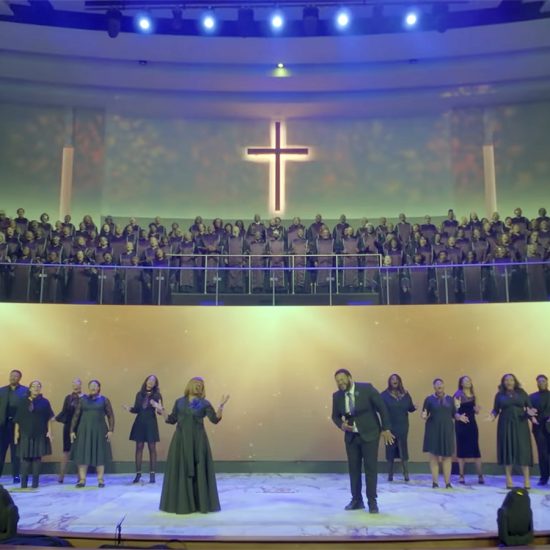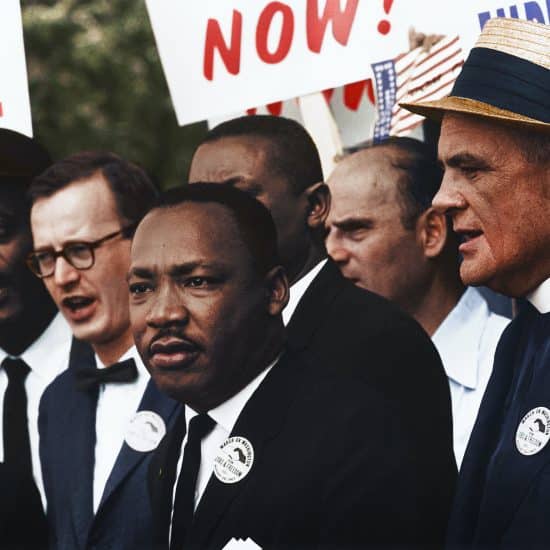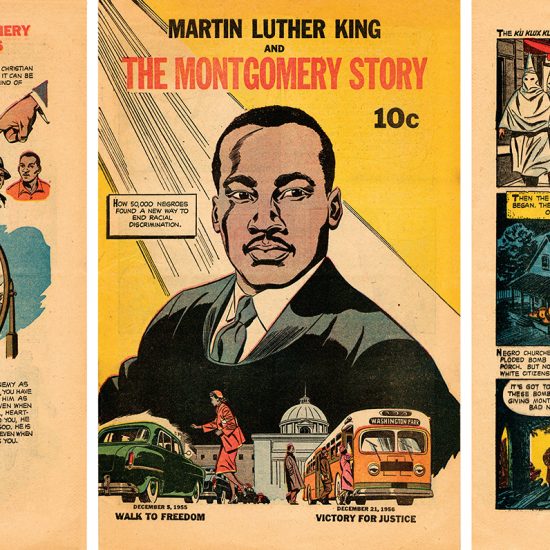

THE ARC OF TRUTH: The Thinking of Martin Luther King Jr. By Lewis V. Baldwin. Foreword by Beverly J. Lanzetta. Minneapolis, MN: Fortress Press, 2022. Xxiv + 384 pages.
Martin Luther King, Jr announced to the world that the arc of the moral universe bends toward justice. That is a vision that gives hope to many, including me, that someday justice will be experienced by all. Getting there has been difficult. In part that is due to our unwillingness to embrace justice, and our unwillingness is often rooted in our unwillingness to embrace truth. That is especially true in this moment of history where many who reside in the United States embrace “alternative truth.” One of those alternative truths has to do with the legacy of racism in our land. For Dr. King, this movement toward justice was rooted in his commitment to the pursuit of truth. It’s a commitment that emerged during his youth and continued throughout his life.

Robert D. Cornwall
We haven’t heard as much about Dr. King’s pursuit of truth but in Lewis V. Baldwin’s The Arc of Truth, we are introduced to the various ways in which this prophet and activist pursued the truth. It is a message that is worth considering as we navigate what many call our post-truth era, an era exemplified by Donald Trump and many of his supporters who have embraced the Big Lie concerning the 2020 election (and now the 2022 election) as well as the anti-woke efforts to bury America’s problematic history when it comes to race.
The author of The Arc of Truth, Lewis V. Baldwin, is an emeritus professor of religious studies at Vanderbilt University. During his long career, he has devoted significant time and energy to studying Dr. King’s life and legacy. This has resulted in his authorship of a number of books about King’s life and legacy, including The Balm of Gilead: The Cultural Roots of Martin Luther King, Jr.; To Make the Wounded Whole: The Cultural Legacy of Martin Luther King, Jr.; and Never to Leave Us Alone: The Prayer Life of Martin Luther King Jr. Although I haven’t read the earlier books, it is clear that The Arc of Truth adds another layer to Baldwin’s work regarding King and his legacy.
In this particular book, which I found to be especially informative, Baldwin focuses on King the thinker. In doing this Baldwin focuses his attention on King’s thinking regarding the Bible, theology, and philosophy, all of which he studied in college, seminary, and his Ph.D. work. However, it’s not just the academic side of things, as Baldwin also shows how his thinking about these subjects influenced King’s work on civil rights and social justice. What we see in this book is the connection between the scholarly and the practical application of what King discovered in his studies, making his efforts deeply rooted biblically, theologically, and philosophically. As Baldwin notes, he seeks to show how King “organized truth into a strategy and method to fight social evil and injustice, a point not sufficiently explored in the extant works of King’s ethics, philosophy, and theology” (pp. xviii-xix). Thus, this is a book that looks not only at King’s commitment to pursuing truth wherever it would lead but how he put that commitment into action.
One of the challenges of our era is that a commitment to truth often devolves into dogmatism. In other words, it is an embrace of a narrow view of reality. While King sought to embrace absolute truth, that commitment was not rooted in fundamentalism. In other words, he was open to new discoveries and new understandings. Therefore, Baldwin offers us a book that focuses on how “King’s life and thought must be understood largely in terms of an enduring search for and commitment to the truth” (p. 2). In this search for truth, according to Baldwin, King followed in the footsteps of such figures as Mohandas Gandhi, whose own efforts influenced King’s work. Baldwin traces this commitment to truth back to King’s childhood when he began questioning what he was being taught, especially at church. He continued this quest for answers in the course of his education beginning at Morehouse College in the late 1940s. This commitment to the pursuit of truth was coupled with a call to ministry so that he could serve God and humanity.
In laying out the nature of King’s life-long commitment to truth and the way he brought that commitment into his ministry calling, Baldwin begins in chapter one by laying out the important developments in King’s life that contributed to this search. As I’ve noted, this began in the context of his family and the church culture in which he grew up. Thus, King’s pursuit of truth was understood, by King, to be a spiritual quest. As he grew up in a household in which his father was his pastor, he struggled with the biblical fundamentalism that was part of his Black Baptist context. This struggle with fundamentalism led to his early embrace of liberal theology. That embrace included questioning the virgin birth. This was further reinforced during his college years at Morehouse, and later during his graduate education at Crozer Theological Seminary and Boston University. In these contexts, he encountered higher critical studies of the Bible as well as an introduction to liberal theology and philosophy. I found this chapter to be extremely helpful in gaining a deeper understanding of King’s religious foundations and the changes he underwent as a result. This prepared him for the work he would take on as a young pastor and civil rights leader.
With chapter one focusing on King’s educational formation and early engagements in social justice work, chapter two takes us deeper into King’s intellectual development, especially concerning his thinking about the convergence of religion and science. As he pondered the relationship between religion and science, he wrestled with questions about relative and absolute truth. While he was committed to the idea of absolute truth, he came to understand that he needed to be open to new insights concerning the nature of truth. This work on truth involved his training in philosophy, especially the philosophical system known as personalism that dominated Boston University, where he did his Ph.D. work. All of this was combined with his pastoral and social activist commitments.
When we come to chapter three, Baldwin focuses on the dialectical nature of King’s thinking about truth This chapter should prove helpful to our own efforts to navigate our current context, where we experience the contradictions of living in a country where it is presumed that all humans are equal even as equality has yet to be experienced by all. As King wrestled with the contradictions he experienced, seeking to make sense of them, he sought to challenge those he engaged to live up to these ideals. In doing this, King drew on Hegel’s analysis of the dialectical process of history as well as Reinhold Niebuhr’s insights as to the nature of humanity. King sought to reconcile his belief in the goodness of humanity, which was a central belief of the liberal theology that he had imbibed at Crozer and Boston, with Niebuhr’s insights as to humanity’s fallenness. He built upon both, which contributed to his engagement with the founding documents of American life: The Declaration of Independence, the Constitution, as well as Lincoln’s Emancipation Proclamation. While he valued the message found in these documents, he recognized that the nation had not truly lived up to the ideals present there. Therefore, he sought to call on his fellow Americans to commit themselves to truly embody the principles enshrined in the documents.
In chapter four, Baldwin builds on what he discussed in chapter three. Here he focuses on King’s sense of calling to be an ethical prophet. It is here that we begin to see how he brought the principles and ideas from his education into his pastoral ministry as well as his involvement in the civil rights movement while serving as a pastor in Montgomery, Alabama, and beyond. When we turn to chapter five, we see how his commitment to truth became embodied in his leadership of the civil rights movement. In this chapter, Baldwin discusses many of the myths embraced by white southerners regarding race, along with King’s refutation of the myth that the north and the south were two different nations where segregation was present in one nation and not the other. While King dealt with overt segregation and discrimination in the South, he sought to uncover the more covert racism and segregation present in the northern states. It is here that Baldwin also King’s encounters with purveyors of the idea that a new south was emerging. While change was occurring in the South, the so-called New South that was being proclaimed still had many of the trappings of the old South. As he takes us on a tour of these realities, Baldwin also begins to develop King’s use of nonviolent action as an expression of truth as well as King’s developing global vision, a vision that led to his opposition to the Vietnam War. He saw this as a further expression of his embrace of nonviolence. All of this was a reflection of a belief in the kingdom of God, which he understood “in terms of the now and the not yet, the present and future, or the real and the ideal.” Baldwin notes that King “envisioned the ideal of the kingdom of God—or the new world order or globalized beloved community—as ‘a time when God would reign supreme in all life and love, brotherhood, and right relationship would be the order of society’” (pp. 269-270).
In chapter five Baldwin brings a close to his study of King’s pursuit of the “arc of truth.” When we turn to chapter six, we encounter a discussion of what Baldwin titles “A Distorted Legacy.” Here Baldwin offers us an important and insightful look at King’s legacy, including how that legacy has been distorted by those who proclaim a “color-blind” society and seek to undermine the protections that King and others fought for, such as the right to vote and live wherever they please. These efforts to use King’s words, often taken out of context, such as King’s 1963 “I Have a Dream” speech, are used to support agendas that run quite contrary to King’s vision. To decouple the word about “the content of one’s character” from race is to reject King’s own commitment to truth-telling. Because this book is about King’s commitment to truth, Baldwin doesn’t shy away from addressing the revelations of King’s extramarital affairs and charges of plagiarism. He notes that King was a deeply flawed human being, though he cautions us to be careful about taking everything we are told at face value since most of these allegations rest on FBI reports that were designed to discredit him as a communist agitator. While King was flawed in terms of embodying his commitment to truth, that need not undermine the pursuit of truth that drove his call to ministry and civil rights leadership. It’s the legacy of this commitment to truth that is needed at this moment in time when it appears we have entered a post-truth era, where facts need not apply, especially when it comes to racism and equity. With that in mind, Baldwin closes the book with these words, noting this about Dr. King’s legacy.
Truth marches on because nothing can stop or defeat it. It marches on because it is imbued with the power and spirit of no surrender. It marches on because it has a date with destiny. It marches on in this post-truth era with the people of all races who raise the banner of Black Lives Matter, with women who comprise the Me Too crusade, with youngsters involved in the March for Our Lives against gun violence, with those who struggle against voter suppression and intimidation, and with those who refuse to bow to Trumpism, post-truthism, or any other form of spiritual and moral perversion and antidemocracy. It marches on with those who honor and celebrate King’s legacy not simply with words but also with deeds that change lives, structures, and institutions for the better. Truth marches on because only truth can have the last word in history (p. 317).
While it is important to remember Martin Luther King the person, if we do not embody the pursuit of truth that leads to justice for all, then we have failed to embody the legacy of King’s message and work.
Martin Luther King was assassinated when I was ten years old. I knew very little about him and his work at that point in life. I have learned much in the years since, but there is always to be learned. Since we live in this post-truth era when King’s message and legacy are being hijacked in service to this post-truth agenda that denies the reality of America’s history when it comes to race, we need books and resources like Lewis Baldwin’s The Arc of Truth. This is a scholarly, detailed, focused look at Martin Luther King’s commitment to truth, revealing that King was not only a civil rights leader and pastor, but he was a deep thinker. In an age that seems to devalue education and intellectual development, here is a good reminder that Dr. King embraced the intellectual side of life. As we walk through this book, Baldwin invites us (as I read this excellent and at times dense book), to embrace truth, and follow it wherever it leads, knowing that truth continues to march on even when some resist and distort the truth.
This review originally appeared on BobCornwall.com.
Robert D. Cornwall is an ordained minister in the Christian Church (Disciples of Christ). Now retired from his ministry at Central Woodward Christian Church (Disciples of Christ) of Troy, Michigan, he serves as Minister-at-Large in Troy. He holds a Ph.D. in Historical Theology from Fuller Theological Seminary and is the author of numerous books including his latest books: Called to Bless: Finding Hope by Reclaiming Our Spiritual Roots (Cascade Books, 2021) and Unfettered Spirit: Spiritual Gifts for the New Great Awakening, 2nd Edition, (Energion Publications, 2021). His blog Ponderings on a Faith Journey can be found at www.bobcornwall.com.






